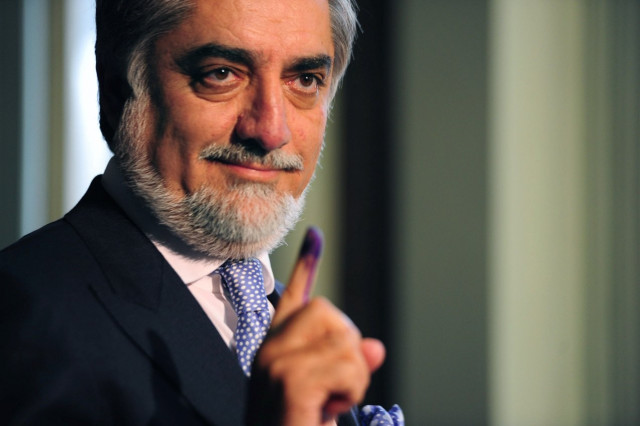Afghanistan's Abdullah Abdullah to visit Pakistan soon
Head of Afghan peace council was invited by FM Shah Mahmood Qureshi

Dr Abdullah Abdullah, the head of Afghan peace council, will soon pay an official visit to Pakistan as part of efforts to advance the peace process that has entered in the crucial phase with an imminent intra-Afghan dialogue.
The visit also indicates improvement in ties between Pakistan and Afghanistan, often marred by mistrust and blame game.
Dr Abdullah, who was appointed as Chairman of the Supreme National Reconciliation Council as part of a power-sharing deal with President Ashraf Ghani, was invited by Foreign Minister Shah Mahmood Qureshi to visit Islamabad, foreign office officials said on Sunday.
Pakistan's special representative on Afghanistan Ambassador Muhammad Sadiq confirmed the invitation in a tweet.
Pakistan-Afghanistan relations are moving forward. Foreign Minister S. M. Qureshi has invited the Chairman of the Supreme National Reconciliation Council, Dr. Abdullah Abdullah, to pay an official visit to Pakistan. Dr. Abdullah Abdullah will visit at mutually convenient dates.
— Mohammad Sadiq (@AmbassadorSadiq) July 5, 2020
"Pakistan-Afghanistan relations are moving forward. Foreign Minister SM Qureshi has invited the Chairman of the Supreme National Reconciliation Council, Dr Abdullah Abdullah, to pay an official visit to Pakistan. Dr Abdullah Abdullah will visit at mutually convenient dates," the ambassador said.
Dr Abdullah was appointed as chairman of the council as part of a power sharing deal with President Ashraf Ghani. This will be the first visit by any senior Afghan figure in months.
Relationship between the two neighbours has remained tense in the past few years primarily because of mistrust. Both accused each other of supporting elements destabilizing each other's country.
But, the ice broke when army chief Qamar Javed Bajwa visited Kabul along with Inter-Services Intelligence (ISI) chief Lt General Faiz Hameed on 9 June. Ambassador Sadiq was also part of the delegation that held wide ranging talks with President Ghani as well as Dr Abdullah.
The improved ties between Islamabad and Kabul are seen as critical for any success of the intra-Afghan dialogue that is poised to start soon. The intra-Afghan dialogue is the second phase of crucial Afghan peace process that culminated on a landmark deal between the US and Afghan Taliban on February 29.
The deal envisages a timeframe for withdrawal of the US troops from Afghanistan in return for Taliban guarantees of not allowing Afghan soil to be used again by terrorist groups such as al Qaeda. The key aspect of the deal was prisoners swap between Afghan Taliban and government.
Initially, President Ghani had refused to free the Taliban prisoners but later he had to change his mind after pressure exerted by the US, which threatened to cancel financial assistance to Kabul.
The intra-Afghan dialogue, which is expected to take place either in Qatar or Germany, will decided the future political dispensation in Afghanistan.
US President Donald Trump is keen to see deal completed before his re-election bid in November but observers believe the process can be bumpy and may face delays because of complexities involved in it.
Pakistan, nevertheless, wants an orderly withdrawal of the US troops with some semblance of consensus among the all Afghan players in order to avoid the situation the neighbouring country faced after exit of former Soviet Union in 1989.



1724319076-0/Untitled-design-(5)1724319076-0-208x130.webp)















COMMENTS
Comments are moderated and generally will be posted if they are on-topic and not abusive.
For more information, please see our Comments FAQ